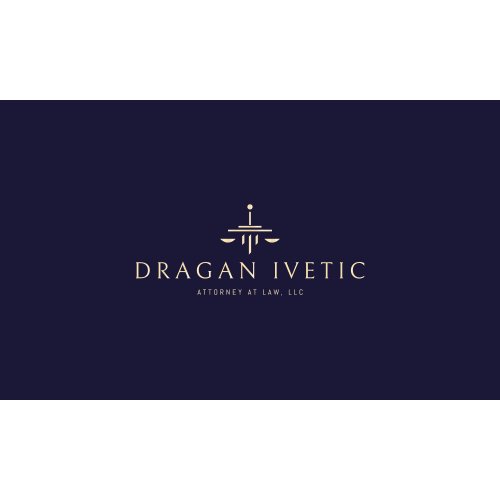Best Art & Cultural Property Law Lawyers in Chicago
Share your needs with us, get contacted by law firms.
Free. Takes 2 min.
List of the best lawyers in Chicago, United States
About Art & Cultural Property Law in Chicago, United States
Art & Cultural Property Law is a niche but significant field that deals with the legal aspects surrounding the creation, sale, and protection of artworks and cultural properties. In Chicago, a city renowned for its vibrant art scene and historical significance, Art & Cultural Property Law ensures the protection of artworks, cultural heritage items, and historical artifacts. This area of law covers various issues such as provenance disputes, intellectual property rights, art transactions, and repatriation of cultural objects. Given Chicago's rich history and prominent cultural institutions, these legal practices are crucial to maintaining the integrity of the city's cultural heritage.
Why You May Need a Lawyer
There are several situations where individuals and organizations might require legal assistance in Art & Cultural Property Law. These include:
- Acquisition Disputes: Legal help may be needed if there are disputes regarding the ownership or provenance of a piece of art or artifact.
- Intellectual Property Rights: Artists and creators often require legal advice to protect their intellectual property from unauthorized use.
- Art Transactions: Buying or selling artwork can be complex, requiring legal oversight to ensure compliance with applicable laws and fair transactions.
- Estate Planning: Legal guidance may be necessary when including art collections in estates or trusts.
- Repatriation Claims: Institutions or individuals may require assistance in navigating claims related to the repatriation of cultural properties.
Local Laws Overview
Understanding the key local laws in Chicago related to Art & Cultural Property Law is essential for anyone engaging in this field. Some significant aspects include:
- Illinois Art Preservation Act: This law protects the moral rights of artists, ensuring their work is not altered or destroyed without permission.
- Chicago Cultural Plan: This city initiative influences art and cultural policies and includes support for cultural property protection.
- Antiquities Act Compliance: Federal laws that affect how archaeological sites and ancient items are managed and protected within the state.
- Local Taxation on Art Sales: Chicago has sales tax implications on art transactions, requiring compliance with local tax laws.
Frequently Asked Questions
What is Art & Cultural Property Law?
Art & Cultural Property Law encompasses the legal protocols and regulations pertaining to the ownership, transfer, preservation, and protection of art and cultural heritage properties.
What should I do if I suspect an artwork I own is stolen?
If you suspect an artwork is stolen, it is advisable to contact a lawyer specializing in art restoration law and potentially report it to authorities to keep transactions open and ensure legal compliance.
How can I prove the provenance of an artwork?
Provenance can be established through historical documentation, previous ownership records, certificates of authentication, and expert analysis. Legal assistance can help in thorough documentation and validation.
What are the consequences of selling a fake artwork?
Selling fake artwork can result in legal disputes, financial penalties, and damage to reputation. It's essential to verify the authenticity of artwork and work with legal experts to avoid such consequences.
Can I inherit artwork through a trust?
Yes, artwork can be included in estate planning, such as wills and trusts. Legal expertise is advised to manage the transfer of ownership effectively and in line with legal requirements.
What is the process for repatriating cultural property?
Repatriation involves legal and diplomatic measures to return cultural property to its country of origin. This often requires collaboration with legal experts, government agencies, and cultural institutions.
Do artists retain any rights after selling their work?
Yes, under laws such as the Illinois Art Preservation Act, artists may retain moral rights, which protect their work from alteration and unauthorized reproduction.
What kind of insurance do I need for my art collection?
It is advisable to obtain a specialized art insurance policy that covers theft, damage, and devaluation. A legal advisor can guide you on comprehensive policy coverage options.
How does Chicago support the protection of cultural assets?
The Chicago Cultural Plan provides frameworks and resources for the preservation of the city's cultural and historical assets, enhancing legal compliance and community involvement.
What steps should I take if I need legal advice about an art transaction?
Consulting an art lawyer is recommended for art transactions. Gather all relevant documentation and contracts and present them to your lawyer for review and advice.
Additional Resources
Here are some resources and organizations that could be beneficial:
- Art Institute of Chicago: Offers resources and insights into cultural property and art law.
- The Lawyers for the Creative Arts: A non-profit providing legal assistance to the arts community.
- Chicago History Museum: A source of historical records and information on cultural heritage preservation.
- Illinois State Bar Association: Offers resources and references to lawyers specializing in Art & Cultural Property Law.
Next Steps
If you need legal assistance in Art & Cultural Property Law in Chicago, consider the following steps:
- Research and connect with attorneys who specialize in this niche area.
- Prepare all necessary documentation pertaining to your specific case or inquiry.
- Schedule a consultation to discuss your situation and receive tailored advice.
- Utilize local resources and organizations for additional support and guidance.
- Stay informed about laws and regulations that may impact your art or cultural property interests in Chicago.
Lawzana helps you find the best lawyers and law firms in Chicago through a curated and pre-screened list of qualified legal professionals. Our platform offers rankings and detailed profiles of attorneys and law firms, allowing you to compare based on practice areas, including Art & Cultural Property Law, experience, and client feedback.
Each profile includes a description of the firm's areas of practice, client reviews, team members and partners, year of establishment, spoken languages, office locations, contact information, social media presence, and any published articles or resources. Most firms on our platform speak English and are experienced in both local and international legal matters.
Get a quote from top-rated law firms in Chicago, United States — quickly, securely, and without unnecessary hassle.
Disclaimer:
The information provided on this page is for general informational purposes only and does not constitute legal advice. While we strive to ensure the accuracy and relevance of the content, legal information may change over time, and interpretations of the law can vary. You should always consult with a qualified legal professional for advice specific to your situation.
We disclaim all liability for actions taken or not taken based on the content of this page. If you believe any information is incorrect or outdated, please contact us, and we will review and update it where appropriate.

















